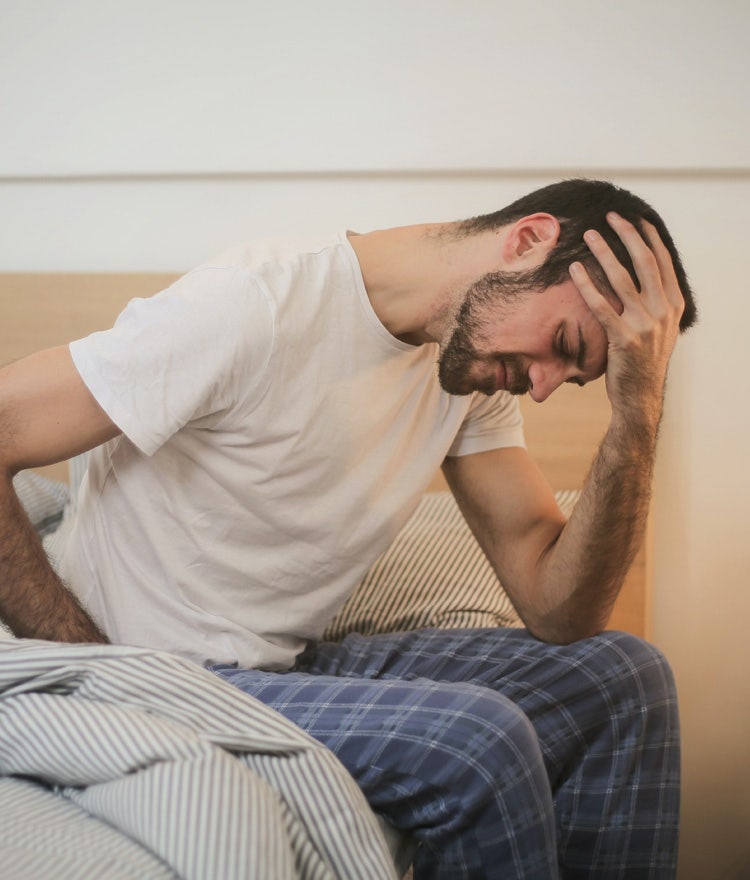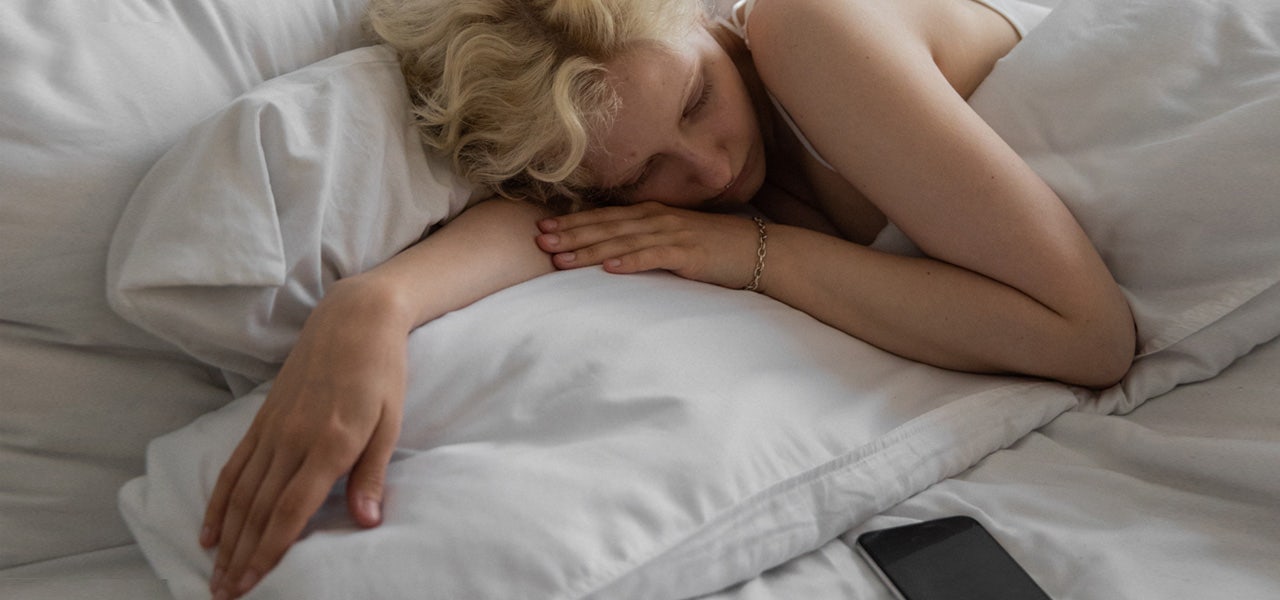
Sure, you’ve heard the phrase, “waking up on the wrong side of the bed.” But, once you get a better understanding of how sleep affects your mental health, it’s not as easy to dismiss feeling “off” or “grumpy” due to poor sleep.
Of course, a few bad nights of sleep or terrible moods that linger are completely normal. It’s part of being human. But, if sleep deprivation is a long-term issue for you, it may be making anxiety, depression or other mental health issues worse. Or, your mental health could be the reason your sleep is suffering in the first place. It goes both ways.
Today, in honor of World Mental Health Day, we’re exploring the relationship between mental health and sleep. While taking care of our mental health is important every day, now is the perfect time to consider this link. Spoiler alert: the link is strong.
Why are so many people sleep deprived?
Let’s back it up because the sleep struggle is real. Sleep deprivation and disturbances have been on the rise for adults for the past 30 years, and today 70% of Americans report sleep problems. This is due in part to our increasingly demanding society and dependence on technology.
Many adults are feeling the weight of work, life and financial stressors more than ever before. This can make it incredibly hard to wind down and decompress at night. We’re in an age of overwhelm with too many people wearing the title “workaholic” as a badge of honor – instead of the warning sign it should be.
Additionally, adults spend more and more time exposed to electronic devices and blue light. Artificial blue light is emitted from smartphones, laptops, television and more. We’re all guilty of working late or scrolling social media before bed at some point or another, but studies show that blue light exposure directly impacts melatonin production and disrupts natural sleep cycles.
How does sleep deprivation disrupt well-being?


Nothing quite compares to a good night’s sleep. It’s hugely important to your quality of life. But, many of us have experienced firsthand what a bad night of sleep can do. Maybe you feel irritable or struggle to perform at work through “brain fog.” That’s because sleep deprivation affects our:
- Cognitive function/reasoning skills
- Memory
- Ability to regulate emotions
- Stress management and coping mechanisms
REM and deep sleep are crucial for many important functions in the human brain and body. During REM sleep, the brain processes new information and emotions, while deep sleep is when the brain repairs itself, essentially removing toxins that build up during the day. If you’re not getting quality sleep, it’s likely these two areas of the sleep cycle, which are critical to mental health, are suffering.
Mental health issues and poor sleep
Right, so remember there is a big different between a few restless nights and long-term sleep deprivation – just like there’s a world of difference between feeling down in the dumps and suffering from a mental health illness or disorder. A bad night or two can make you foggy and irritable, but long-term sleep deprivation can lead to changes in mental health or worsen existing mental health disorders. Lack of sleep can trigger the initial onset of certain psychological disorders and has been tied to:
Depression – Poor sleep, specifically insomnia, can induce or exacerbate depression. Those who suffer from depression have been shown to experience excessive daytime sleepiness or hypersomnia (sleeping too much) and have an increased risk for suicide.
Anxiety – The ongoing cycle of anxiety and poor sleep can feel impossible to break. Those who suffer from anxiety tend to experience sleep disturbances and lack of sleep, but lack of sleep also feeds the feelings of anxiety. Those who battle sleep deprivation have an increased risk of developing anxiety disorders and struggle to cope with stress and emotions.
Bipolar Disorder – Insomnia, nightmares and interrupted sleep-wake cycles are all common in those who suffer from bipolar disorder. Reduced sleep in those with bipolar disorder has also been shown to cause symptoms of mania, hysteria and hypomania.
Post-Traumatic Stress Disorder (PTSD) – Studies show that 80-90% percent of people who suffer from PTSD experience sleep deprivation. Poor sleep can result in the development of PTSD, or it can worsen existing PTSD conditions.
5 Natural ways to improve sleep for better mental health


One of the best things you can do for both your mental and physical health is to get better sleep. We know, it isn’t always easy. Fortunately, there are many natural things you can do to improve your sleep quality. Here are some ideas to try if you’re worried poor sleep is affecting your mental health:
- Put away electronic devices at least two hours before bed and reduce your exposure to blue light. Invest in blue light blocking glasses if needed.
- Avoid alcohol, tobacco and caffeine in the evening hours. It can be beneficial to avoid these things altogether for improved mental health.
- Keep a consistent sleep schedule, even on the weekends. Try going to bed at a time that allows for at least 8 hours of sleep each night and waking up with the sun. Exposure to direct sunlight first thing in the morning has been shown to improve circadian rhythm and overall mental health.
- Exercise regularly to improve mental health, balance stress hormones, and enhance sleep quality. Daily walking or yoga can make a big difference.
- Revamp your sleep routine and bedroom environment to promote relaxation. Reduce exposure to light, loud noises and environmental toxins. Creating a dark, cool, comfortable and clean environment can result in more restorative sleep.
This year, make getting better sleep your main mental health goal and see what happens! With improved sleep comes improved mental health. And, with improved mental health, comes improved relationships, achievements and overall quality of life.
But, please, never feel like you need to battle mental health issues alone. Talk to a friend, reach out to online forums, follow social accounts that speak to your challenges, and seek professional help when it feels like too much.
